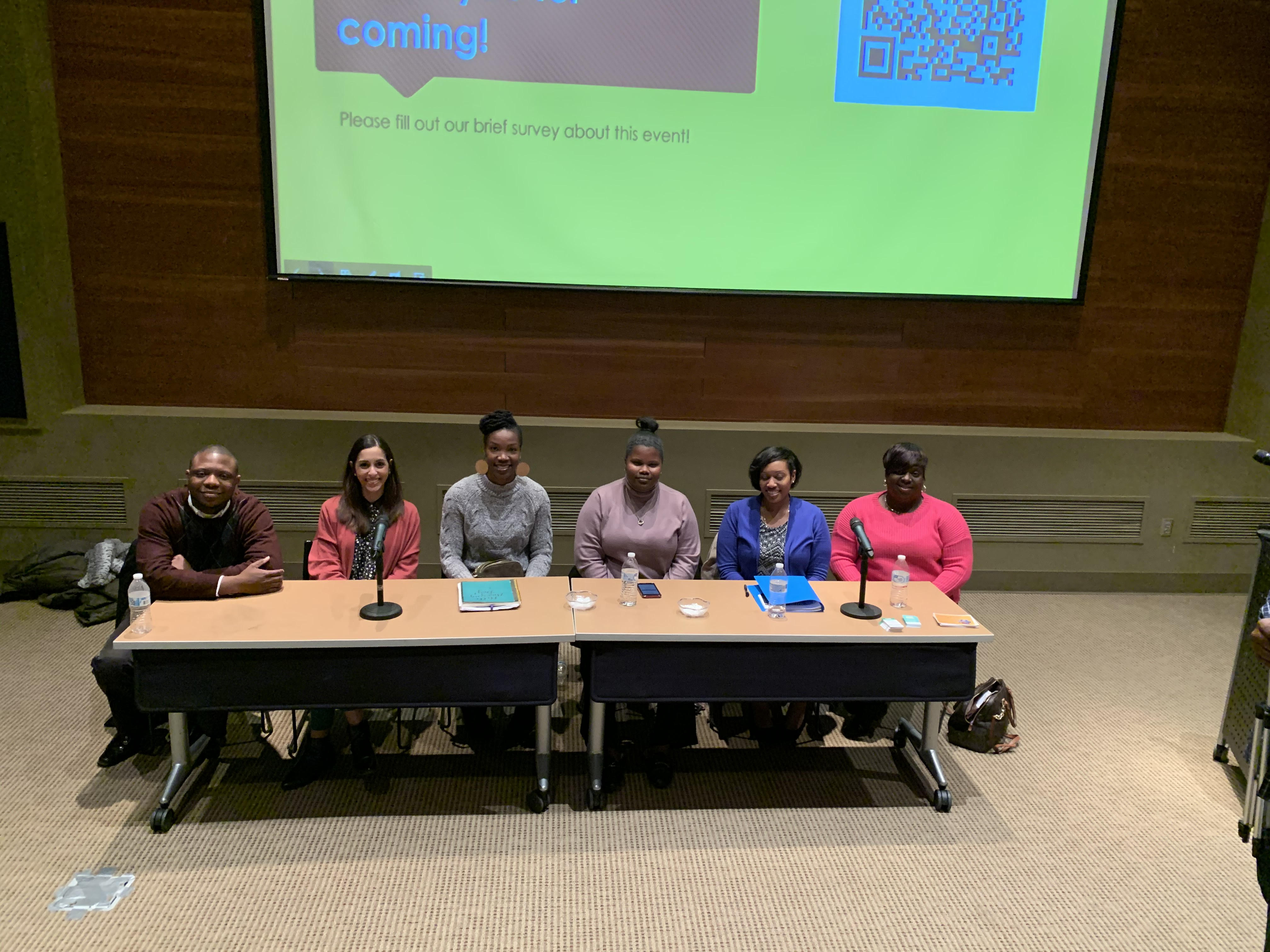Mental health has become an important topic in the larger cultural conversation, and last week Winthrop held an event to discuss how mental health issues are dealt with in communities of color.
Narkeya Byrd is a licensed clinical therapist and co-founder of Prolific Life Support Network of The Carolinas, and she was a panelist during the discussion last Wednesday. Byrd highlighted how minority students face issues related to mental health differently.
Byrd talked about issues first generation college students may face. For example, figuring out how to pay for college without having people around them who have experience in such a situation can create a barrier for first generation students. This barrier can also lead to college students not knowing which resources on campus may be available to them, such as free counseling services.
Mental health advocate and first generation college student Nyjia Lowrance graduated from North Carolina Central University in Durham, North Carolina. She referenced the fact that Durham is known as “the city of medicine” but that she struggled harder than she thought she should have to find counseling services that made sense for her and were accommodating of her financial status.
Mental health advocate Shanae Wright talked about how mental health struggles are viewed in African American culture. She described growing up and hearing people who were struggling referred to as “different” and said that the struggles of those labeled as such were, in her experience, not properly addressed. Mental health issues often overlap with substance abuse and addiction, and Wright said that those who dealt with substance abuse issues were downplayed and written off as just a “crazy drunk aunt,” for instance. That label was accepted, and, in her culture, they didn’t try to seek out help for those individuals. They were accustomed to letting these people “have their moments” and then moving on instead of facing the issue that they needed help.
“We don’t seek out help, we just deal with it because that’s all we know,” Wright said.
Tiana Harrell is a junior who said she has dealt with mental health issues but felt like her family is what held her back from seeking professional help before coming to Winthrop. When Harrell opened up to her family about issues, she was told “you’re not crazy, you just need Jesus.”
Harrell said that in the African American community talking about mental health is looked down upon.
“I have to love me for me,” Harrell said, describing becoming okay with not being accepted by everyone. Harrell has credited some of her mental health growth to the free counseling services that are available on campus.
Mokeela Brown, health committee chair for the NAACP at Winthrop, said that stigmas within a community are hindrances.
“I think with generalizations, they [impede] the idea of getting help when you really need it,” Brown said. “I don’t think people realize how toxic generalizations can be to a person’s mental health. It doesn’t help to deflect from the issue that this person is sad and needs help/support.”
Yazmeen Garcia is a graduate student at UNC Charlotte who is studying to be a mental health and addiction counselor. Garcia’s parents are from the Dominican Republic and Puerto Rico, and she said that in her culture, religion was offered as a way for people to handle mental health issues.
“We’re all from different cultures and taught to handle situations differently,” Garcia said.
Garcia described being made to feel as if something was wrong with her while she was growing up for seeking out help instead of trusting religion to help.
Winthrop’s Director of Campus Programming Angelo Geter said that he had a similar experience. He recalled being told “God will handle it” and that he didn’t need to see a therapist for his mental health.
Geter quoted a phrase associated with James 2:14, “Faith without works is dead” and used this scripture to draw on the fact that even though those who were religious were telling him that all he needed to do was give it to God.
“Therapy is part of the work,” Geter said.
Sophomore Stephanie Martinez said that if you open up about mental health issues within her culture, it’s seen as an excuse for just being “lazy” and not wanting to face your problems. She also expressed frustration about difficulties that arise when trying to get an appointment with a counselor on campus.
Jessica Hudgens, staff counselor and outreach coordinator, moderated this panel. While Hudgens understands frustration with the counseling center being booked occasionally, she encouraged students to book intake sessions early in the semester. This way, the students will already be in the system and will have a better chance of being seen during high-stress times in the semester. There are currently four counselors and two interns who see students.
Sophomore Jamia Johnson said that “taking time” for herself and “realizing the importance of a healthy mind” has been beneficial. She said that having a support system has been key to keeping her mental health in check and how, in her experience, a night out with friends can make a difference in one’s mental health.
Photo: Ann Marie Juarez/ The Johnsonian




